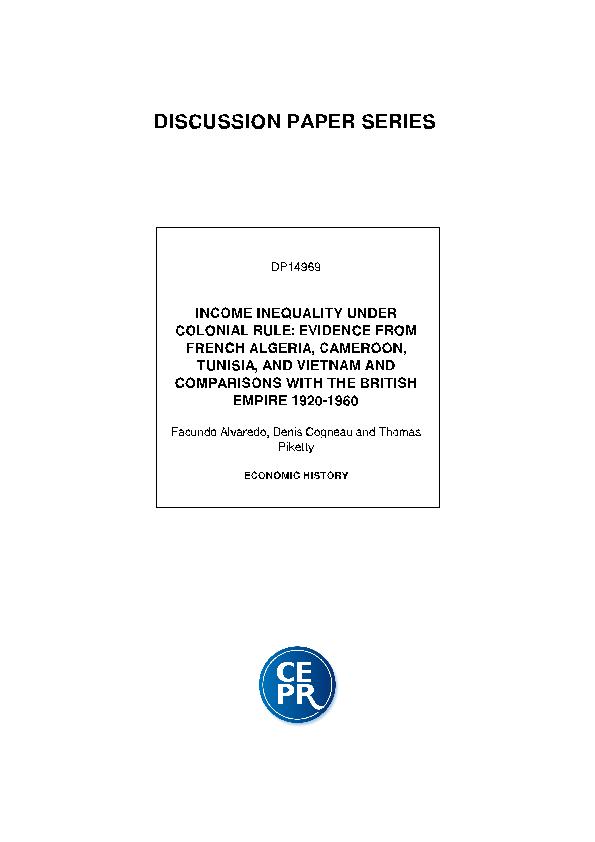Artículo
Income Inequality under Colonial Rule: evidence from French Algeria, Cameroon, Tunisia, and Vietnam and comparisons with the British Empire 1920-1960
Fecha de publicación:
06/2020
Editorial:
Centre for Economic Policy Research
Revista:
CEPR Discussion Paper Series
ISSN:
0265-8003
Idioma:
Inglés
Tipo de recurso:
Artículo publicado
Clasificación temática:
Resumen
In this article we assess income inequality across French and British colonial empires between 1920 and 1960. For the first time, income tax tabulations are exploited to assess the case studies of French Algeria, Tunisia, Cameroon, and Vietnam, which we compare to British colonies and dominions. As measured by top income shares, inequality was high in colonies. It fell after WWII, but stabilized at much higher levels than in mainland France or the United Kingdom in the 1950s. European settlers or expatriates comprised the bulk of top income earners, and only a minority of autochthons could compete in terms of income, particularly in Africa. Top income shares were no higher in settlement colonies, not only because those territories were wealthier but also because the average European settler was less rich than the average European expatriate. Inequality between Europeans in colonies was similar to (or even below) that of the metropoles. In settlement colonies, the post-WWII fall in income inequality can be explained by a fall in inequality between Europeans, mirroring that of the metropoles, and does not imply that the European/autochthon income gap was reduced.
Palabras clave:
inequality
,
colonialism
,
Africa
,
Asia
Archivos asociados
Licencia
Identificadores
Colecciones
Articulos(IIEP)
Articulos de INST. INTER. DE ECONOMIA POLITICA DE BUENOS AIRES
Articulos de INST. INTER. DE ECONOMIA POLITICA DE BUENOS AIRES
Citación
Gonzalez Alvaredo, Facundo; Cogneau, Denis; Piketty, Thomas; Income Inequality under Colonial Rule: evidence from French Algeria, Cameroon, Tunisia, and Vietnam and comparisons with the British Empire 1920-1960; Centre for Economic Policy Research; CEPR Discussion Paper Series; 14969; 6-2020; 1-57
Compartir




